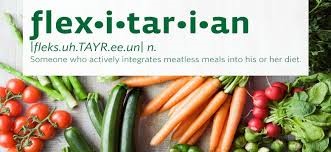 No doubt, you’ve noticed the rise in TV ads highlighting the advent of plant-based foodstuffs. This newest food trend is positioning itself to grab our attention, tempt our wallet and perhaps satisfy our taste buds.
No doubt, you’ve noticed the rise in TV ads highlighting the advent of plant-based foodstuffs. This newest food trend is positioning itself to grab our attention, tempt our wallet and perhaps satisfy our taste buds.
A&W ads tout their team up with Beyond Meat, plant-based product titan, and became the first national burger restaurant to serve delicious plant-based proteins as noted by the Financial Post. Other food chains, including Tim Horton’s quickly began following suit.
A recent front-page article in the Business section of the Toronto Star drew my attention to the fact that our own Maple Leaf Foods Inc, the Canadian meat processing mammoth, has bet hundreds of millions of dollars that plant-based meat alternatives will become mainstream as flexitarians make different food choices in restaurants and grocery aisles. The new “meatless” protein looks, cooks and tastes more like ground meat than ever before. With the addition of beet juice the faux beef even bleeds. There's even a move towards "faux fish".
The article goes on to state that the move to the creation of plant-based protein sources is supported by the spotlight on the health benefits of a more plant-based diet and the conscious move by many to reduce their reliance meat as their source of protein to be more in sync with reducing their impact on the environment. Recent Mintel polls confirm that 60% of Americans say they are trying to eat less meat, while a Nielsen survey found that 40% are trying to eat more plant protein. Food companies are seeking to move beyond the traditional 7 to 10 percent (US stat) who identify as vegetarian or vegan and recruit consumers from the remaining per cent of the mainstream and claim their buying allegiance.
Whether it’s for your health, the planet or just plain curiosity you might want to try the new plant-based products now available as a take-out choice or at your local supermarket.
-Sr. Nancy Wales, csj









